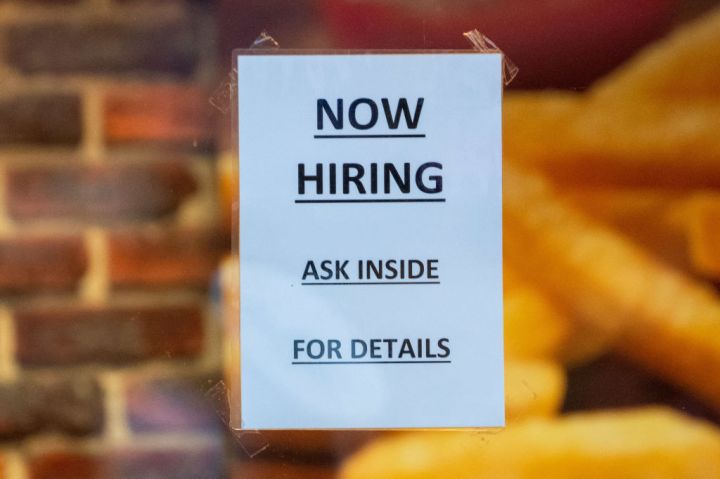ADULTING (SORT OF)
Job hunting in the 21st century – tips from an expert

Entering the workforce may be daunting. A career coach breaks down what to expect when looking for your first job and how to put your best foot forward.
There are many challenges that young people may face when they are looking to enter the workforce, Candice Black, a psychometrist and career coach based in Cape Town says.
“Young people may be faced with the catch-22 situation of having limited work experience, but needing work experience to get a job. Another common challenge may be insufficient support and mentorship,” she says.
“It is in your best interests as a young person to be resourceful in seeking out guidance, mentorship and support networks. By taking the initiative and being open to learning [through] new experiences, you can gain assistance navigating the job market, choosing a suitable career path and making informed decisions.”
Choosing a career path
First, it can be helpful to know yourself and where your talents lie.
To get started, Black poses a series of questions that can prompt such self-reflection:
- What are your skills, interests, personality traits, values and passions?
- What type of content engages you?
- What type of content do you consume? What topics pique your interest?
- What is important to you?
- What type of lifestyle do you want to live in the future?
- How would your friends and family members describe you? How do they identify your strengths and weaknesses?
“You need to have an idea of the direction you are interested in heading in before you do anything else,” Black advises.
Once you have a better understanding of goals, the next step is to research how best to achieve those. There is no set path for many careers, but knowing the best routes may prove invaluable.
Read more in Daily Maverick: From healthy sex to meal planning – welcome to adulthood (sort of)
“Go online to find out about the skills needed for jobs you are interested in, search social media, and conduct informal interviews with people who have interesting jobs so that you can gather information and build your network simultaneously,” says Black.
Holiday jobs, part-time jobs, entrepreneurship and volunteering are also opportunities that can allow young people to develop transferable skills to enter the job market, she adds.
According to Black, networking is vital in today’s professional landscape, and can be valuable in various stages of your career, not just at the beginning.
“It can open up job opportunities, access to information and resources, partnerships, mentorships, and provide motivation and inspiration, she says.
Attending industry-specific events and conferences and making contact with professional associations, entrepreneurship forums and social and community organisations can introduce you to people you may not have met otherwise and help you to form professional connections.
Online platforms can also be helpful, through online webinars to build skills, professional websites like LinkedIn to connect with professionals, Meetup.com for relevant meet-up groups in your area and on social media to follow industry influencers, thought leaders and professional organisations, Black advises.
Putting your best foot forward
When applying for a job, a CV is the first impression that a potential employer has of you, Black says.
She recommends including a professional summary or objective statement in the document, which provides “a concise overview of your professional background, skills and career goals” – this section can be adapted to match the specific job you’re applying for.
“The secret to a compelling CV is to quantify your impact using numbers and metrics,” says Black. Think about answering questions like, ‘Did your achievement save time or increase revenue for your company?’; or ‘How many clients did you see? And what results did they achieve?’
“If you don’t have any work experience, showcase notable achievements, projects, or research work that demonstrate your capabilities and contributions.
“Emphasise outcomes, impact and relevant skills gained during these experiences. In most cases, your CV should not be longer than two pages. Also make sure your brand is consistent across platforms,” Black advises, and that you “use action verbs such as ‘achieved,’ ‘created,’ ‘delivered,’ or ‘investigated’ rather than passive language.”

Attendees at a career fair hosted by the New Hanover NCWorks and the Cape Fear Workforce Development Board in Wilmington, North Carolina, US, on 20 June 2023. (Photo: Allison Joyce / Bloomberg via Getty Images)
While you may be tempted to embellish a CV, Black warns against this, saying it could have severe consequences and damage your professional reputation. Rather, represent yourself fairly and accurately in a professional manner that reflects well on your character.
Black offers a few more tips on how to polish a CV: for example, avoid including irrelevant information, too much personal information, and generic or blanket statements that don’t provide specific information about your skills or achievements.
Also avoid using an unprofessional email address – create one using some combination of your full name – as well as silly spelling and grammar mistakes. Proofread your CV thoroughly before you submit it, and ask a family member or friend to double check it.
Today, social media is another reflection of an applicant, and some companies and organisations will look up prospective candidates online during the hiring process. A 2020 survey found that 71% of hiring decision-makers in the US believed that looking at candidates’ social media profiles is an effective way to screen applicants, and 67% used this as a consideration in the hiring process. Therefore, Black recommends being conscious about your social media presence and how it may serve your application or do you a disservice.
“Depending on your profession or industry, you may take a different approach to your social media presence,” she says.
For example, applicants who work in online media could use social media to build their brand and showcase their skills and talents.
“You could even go so far as to create a video CV or a simple personal website/landing page which represents your personal brand, and link any online features to your LinkedIn and website,” she explains.
Ask yourself: If you were hiring for your own company and a potential employee posted this, what message would it send?
“However, if this type of thing is not applicable to you or comfortable for you, you do not need to feel pressured to make your online presence overly visible. In fact, some degree of privacy is expected (and respected) by potential employers.
“A professional LinkedIn profile is more than adequate. Make sure you have a professional-looking picture and polished profile, which you update fairly regularly. However, if you do have a more public online footprint, make sure you do not tarnish your reputation by posting content that could paint you in a negative light.”
Be interview-ready
The interview is the next step in the hiring process and is an opportunity for applicants and employers to see if the company is a good fit for both parties.
Before the interview, Black recommends researching the company, understanding the job requirements and brainstorming some standard responses to possible questions. However, she also warns against overpreparing, since you never know exactly what will be asked in the interview.
“You don’t want to overthink the possibilities as this can cause you to feel more stressed,” she says.
“During the interview, concentrate on actively listening to the questions and engaging in the conversation. Pay attention to what is being asked and feel free to take a moment to gather your thoughts before responding. It is important to be authentic and true to yourself. Let your genuine personality shine through as people can usually pick up if you are acting like a robot and telling them what they want to hear. Last, talk kindly to yourself, think positive thoughts, visualise success and take some deep breaths.
“Speak clearly and confidently and make eye contact, introducing yourself with a firm handshake (if in person). Use the STAR method (Situation, Task, Action, Result) to structure your responses, providing specific examples with evidence of your experiences.
“After the interview, thank the interviewer for their time. It is also a good idea to send a thank-you email to reiterate your interest in the position and express gratitude for the chance to interview.”
To put your best foot forward, Black also adds the importance of looking after yourself leading up to the interview:
- Get enough sleep;
- Limit your alcohol intake;
- Eat beforehand;
- Allow yourself plenty of time to arrive 15 minutes early to avoid feeling rushed; and
- Dress professionally, but comfortably.
Dress codes vary from company to company and profession to profession, so Black recommends researching the company policy beforehand and dressing for the interview accordingly.
“Regardless of the type of company you are interviewing at, it is important to dress professionally. In most cases, opt for formal or business professional attire in a conservative colour such as black, navy blue or grey, especially for more traditional or corporate environments. Make sure you look neat and well groomed,” she says.
The perfect employee?
Finally, whatever the role or the sector, employers are looking to hire people who will make positive contributions to the company.
“Regardless of the technical skills needed for specific jobs, the majority of employers look for conscientious employees,” Black says, noting that this personality trait is known to be the greatest predictor of top performers in the workplace.
Jayson Darby, director of science at human resources service Thomas International, writes that conscientiousness has been described as “the perfect personality for a team”, as “conscientious individuals demonstrate a strong work ethic, are reliable, punctual, pay attention to detail and show commitment and purpose”.
“One needs to have strong interpersonal and communication skills, and the ability to be flexible and resilient. Critical thinking and creative problem-solving skills are essential. Employers are also looking for self-starters who are proactive – those who don’t need to be asked to do something but instead take initiative,” Black says.
Read more in Daily Maverick: Saving for the future (even if it seems far away)
“Continuous learning and a growth mindset are essential; a willingness to acquire new skills, pursue professional development opportunities, and stay updated with industry trends, demonstrating your dedication to personal and professional growth.”
Such employees also have good emotional intelligence skills, Black notes, which are “absolutely critical in today’s workplaces”.
Therefore, demonstrating these traits can go a long way towards proving to employers that you are a valuable asset to an organisation. DM















 Become an Insider
Become an Insider
Comments - Please login in order to comment.